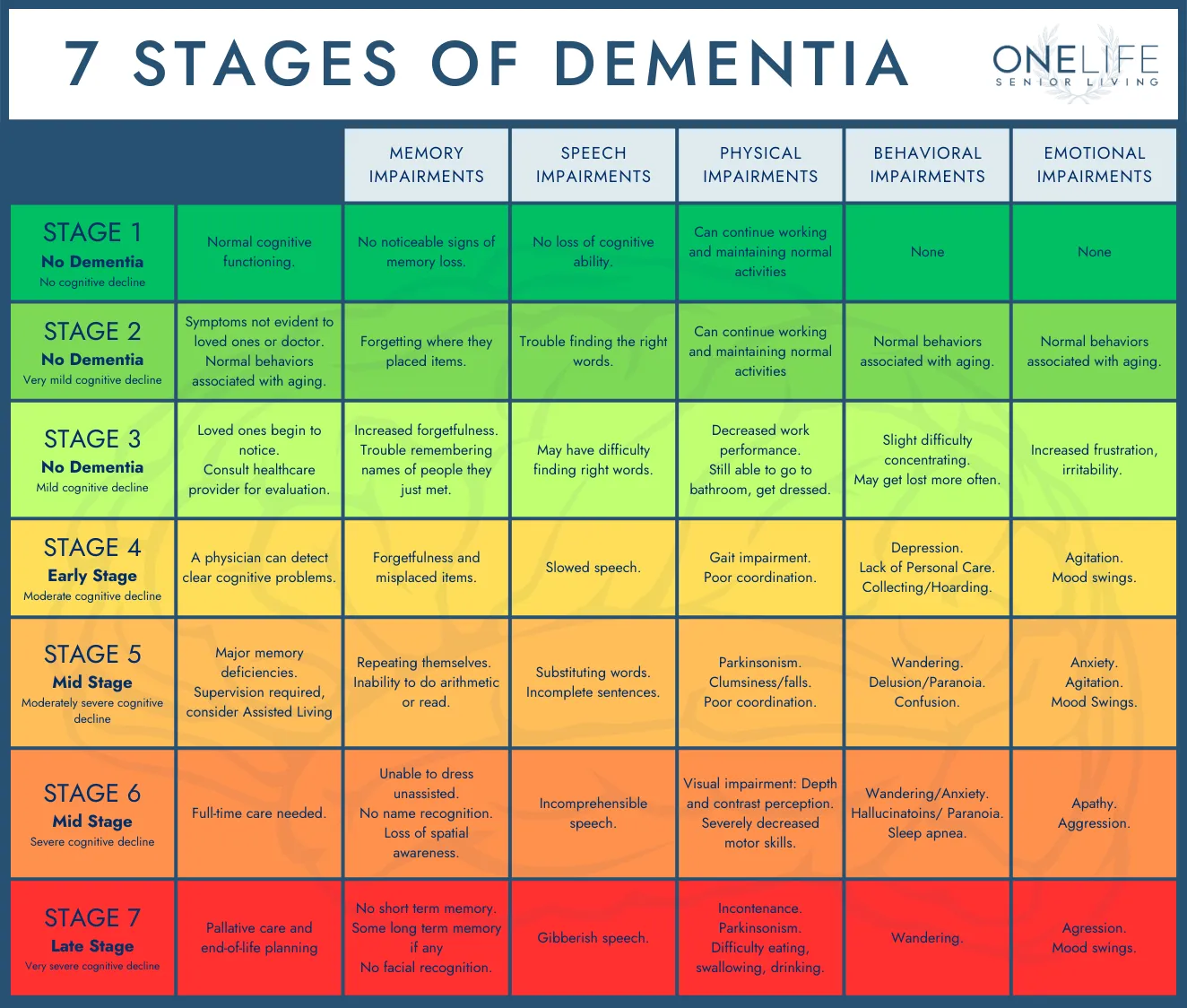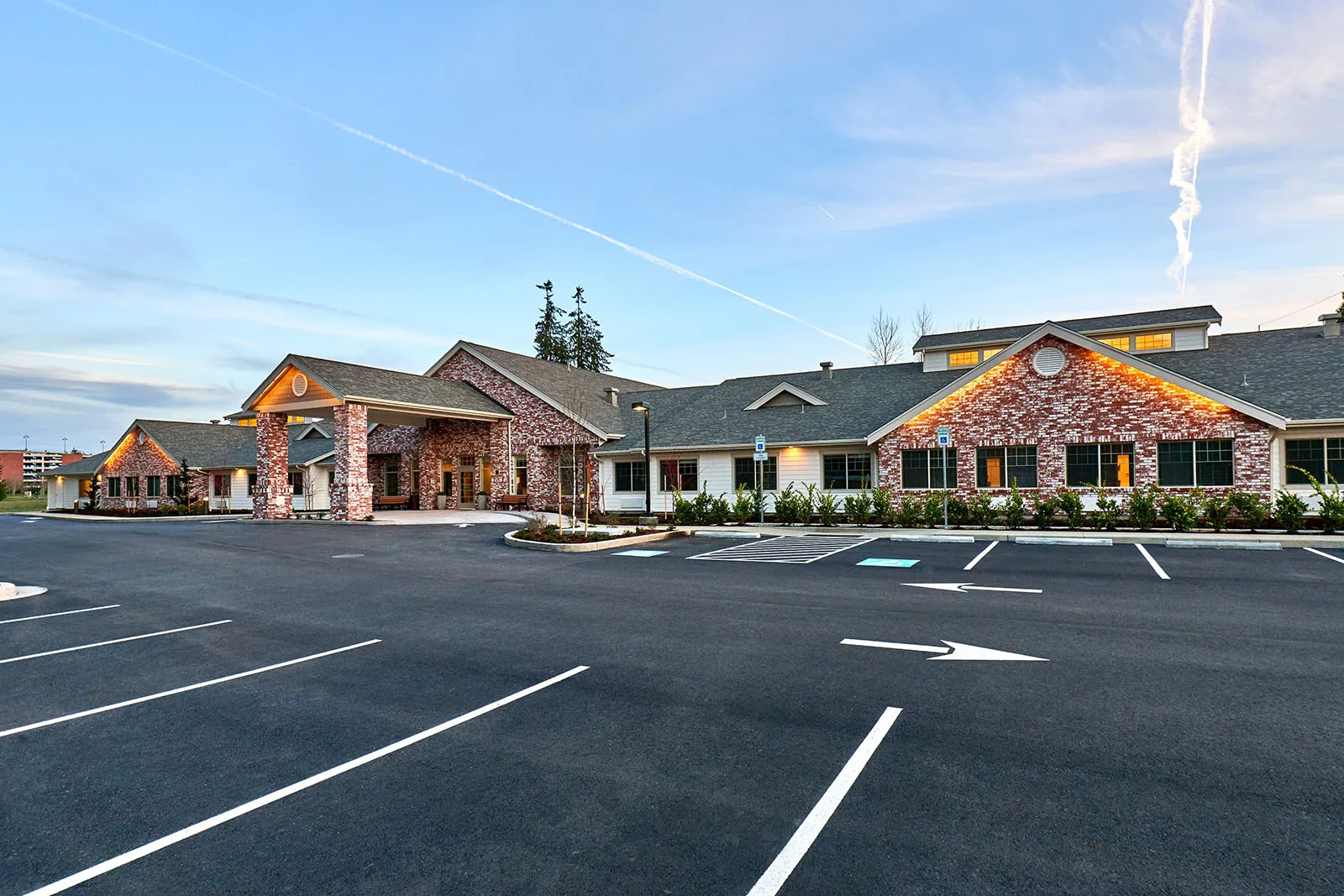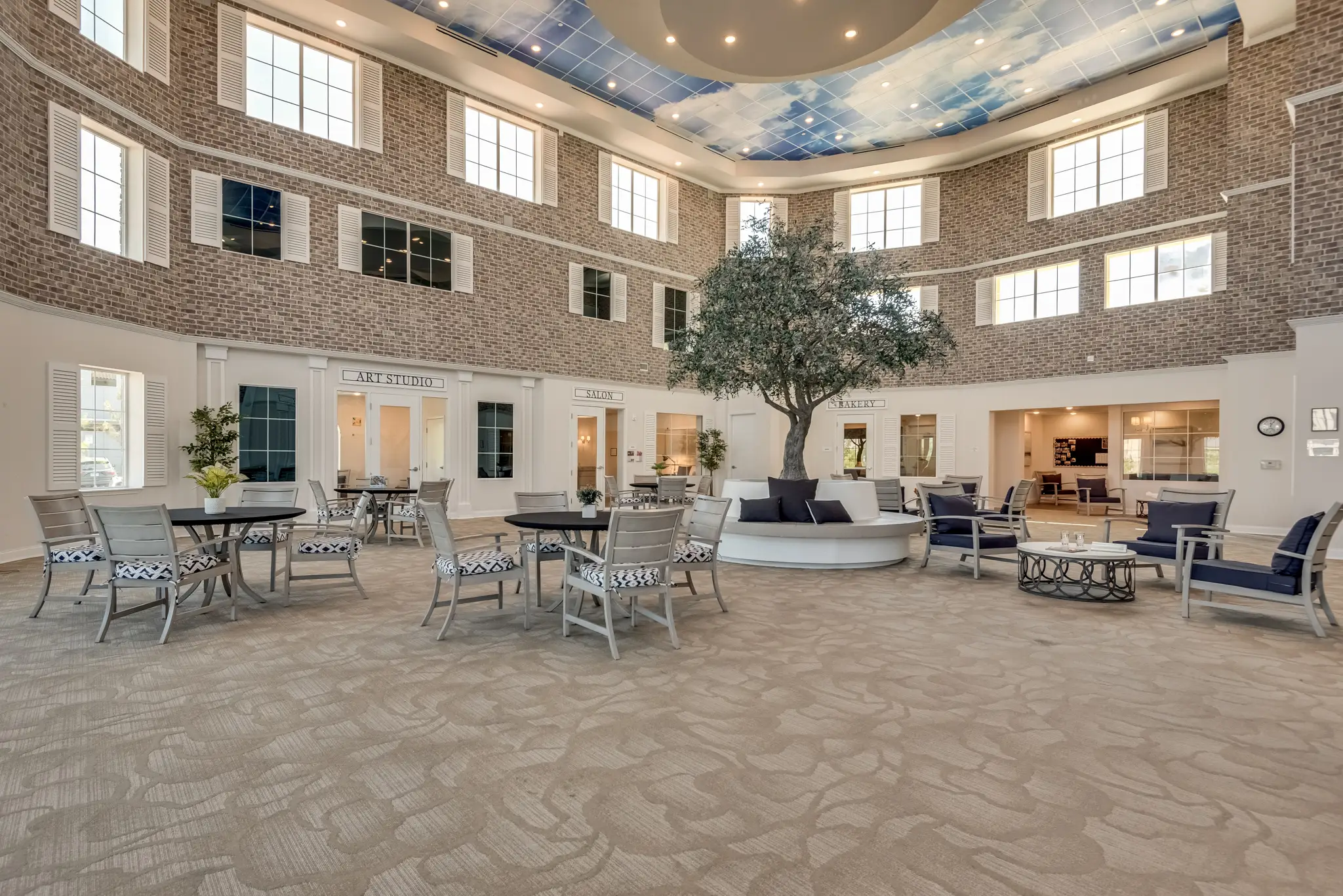Memory Care vs. Dementia Care: Understanding the Difference

When it comes to caring for individuals with memory-related conditions, such as Alzheimer’s disease or other forms of dementia, understanding the differences between memory care, dementia care, assisted living, and nursing homes is essential. While these terms are often used interchangeably, they actually represent two distinct approaches to care, each tailored to meet specific needs. Memory care focuses on providing specialized support for individuals with significant memory loss, while dementia care encompasses a broader range of services for those experiencing varying levels of cognitive decline. In this article, we will delve deeper into the key distinctions between memory care and dementia care, exploring how they differ in purpose, setting, and level of support. Additionally, we will compare memory care with other care options, such as assisted living and nursing homes, to give you a clearer understanding of what each offers. Gaining insight into these differences can empower you to make informed and confident decisions when choosing the best care option for yourself or your loved one.
Summary
Memory care and dementia care both support individuals living with cognitive decline, but they differ in setting and scope. Dementia care is a broad term for services offered at home or in senior living communities, while memory care refers to specialized, secure environments with 24/7 support and structured routines designed specifically for people with Alzheimer’s or other forms of dementia.
Table of Contents
- What Is Dementia Care?
- What Is Memory Care?
- When to Transition to Memory Care
- Costs & Coverage
- How to Choose the Right Community
- Frequently Asked Questions
Key Takeaways
- Memory Care: Specialized facilities providing structured, secure environments for individuals with significant memory loss, offering tailored programs and 24/7 support.
- Dementia Care: A broad range of services, including in-home care and community programs, designed to support individuals across various stages of cognitive decline.
- Assisted Living: Offers a supportive environment for seniors who need help with daily activities but do not require specialized memory or medical care.
- Nursing Homes: Provide skilled nursing care for seniors with complex medical needs, often including short-term rehabilitation or long-term care for chronic conditions.
What is Memory Care?
Memory care refers to specialized facilities designed to support individuals with significant memory impairments, such as Alzheimer’s or other forms of dementia. These communities offer:
- Safe and Secure Environments: Featuring alarmed doors, secure outdoor spaces, and layouts designed to prevent wandering.
- Specialized Programs: Tailored activities to stimulate cognitive function and foster social engagement.
- Trained Staff: Caregivers with expertise in dementia care, ensuring compassionate and individualized support.
Memory care is ideal for individuals who need a high level of supervision and personalized care in a structured setting.
Memory care is a specialized form of long-term care specifically designed to support individuals with memory-related conditions, such as Alzheimer's disease, vascular dementia, Lewy body dementia, and other cognitive impairments. This type of care addresses the unique challenges associated with memory loss, providing residents with a structured, secure, and supportive environment where they can thrive. Memory care facilities are equipped with trained staff and tailored programs to ensure residents receive the highest quality of care and support.
A hallmark feature of memory care facilities is their focus on safety. These communities often include secure entrances and exits to prevent residents from wandering, a common behavior among individuals with dementia. The physical design of the spaces, such as clearly marked pathways and calming decor, is often intended to reduce confusion and promote a sense of familiarity. In addition to safety measures, memory care facilities provide engaging, memory-enhancing activities and therapies. Programs such as music therapy, art therapy, and reminiscence therapy aim to stimulate cognitive function, evoke positive memories, and foster meaningful connections among residents.
Staff in memory care facilities provide 24-hour supervision and assistance with daily activities, including bathing, dressing, and medication management. Team members are specially trained to understand the complex needs and behaviors associated with dementia, including agitation, confusion, and aggression. They utilize compassionate, evidence-based approaches to help manage these behaviors while preserving each resident's dignity and promoting a high quality of life. The combination of skilled care, a supportive environment, and tailored programs makes memory care an essential option for those living with advanced memory loss, offering peace of mind to both residents and their families.
In addition to professional care, memory care facilities often emphasize building a sense of community and belonging among residents. Social activities and group programs are designed to encourage interaction and create meaningful relationships in a secure and nurturing environment. Mealtimes, for example, are typically structured to foster a sense of routine and connection, with staff ensuring residents are comfortable and engaged. This holistic approach helps not only to meet physical and cognitive needs but also to support emotional well-being, ensuring that residents experience a fulfilling and enriched life.
Read our blog: Understanding Memory Care: A Comprehensive Guide
What is Dementia Care?
Dementia care is a broader term encompassing services that support individuals at various stages of cognitive decline. These services may include:
- In-Home Care: Professional caregivers assisting with daily tasks while allowing seniors to remain at home.
- Community Programs: Day programs offering activities, meals, and supervision.
- Specialized Support: Services designed to manage behavioral and emotional changes caused by dementia.
While dementia care is comprehensive, transitioning to memory care may become necessary as the condition progresses.
Dementia care, on the other hand, is a broader term that encompasses a range of services and support for individuals with dementia. While memory care is a specific type of dementia care, dementia care can also include home care, adult day programs, and other community-based services. These diverse options allow families to choose the level of support that best suits their loved one’s needs and stage of dementia.
Dementia care focuses on providing assistance and support to individuals with dementia in their own homes or in community settings. This type of care aims to help individuals maintain their independence and quality of life for as long as possible. Dementia care services may include assistance with daily activities, such as meal preparation, housekeeping, and transportation, as well as social and recreational activities that promote engagement and reduce feelings of isolation. These programs are often flexible, making it easier for families to balance caregiving responsibilities with their own needs.
In addition to practical assistance, dementia care often involves coordinating with healthcare providers to ensure proper management of medications and medical appointments. Caregivers may provide emotional support and companionship, offering comfort to individuals with dementia and helping to alleviate feelings of confusion or anxiety. Dementia care can be provided by professional caregivers, family members, or a combination of both, depending on the family’s needs and resources. The goal is to create a supportive and comfortable environment that respects the individual’s dignity, personal preferences, and unique abilities.
Another essential aspect of dementia care is caregiver education and support. As dementia progresses, caregiving responsibilities can become increasingly challenging, and caregivers may need guidance on how to manage changing behaviors or adapt to their loved one’s evolving needs. Many community-based dementia care services include resources such as training programs, support groups, and respite care to help caregivers navigate this journey. These resources not only empower caregivers but also ensure that individuals with dementia receive the most compassionate and effective care possible.
Key Differences between Memory Care and Dementia Care
The key difference between memory care and dementia care lies in the level of care and support provided. Memory care facilities are specifically designed to meet the unique needs of individuals with memory loss and provide a higher level of supervision and assistance. These facilities often include secure environments and specialized programs tailored to individuals with advanced cognitive decline, such as structured daily routines, therapeutic activities, and staff trained to manage challenging behaviors like wandering or agitation.
Dementia care, on the other hand, can be provided in a variety of settings, including the individual's own home, adult day programs, or community-based facilities. While memory care facilities offer 24-hour supervision and assistance, dementia care services are often more flexible and customizable to the individual’s needs. For instance, someone in the early stages of dementia may benefit from in-home care or part-time adult day programs, which provide assistance with tasks like medication management, meal preparation, or transportation. Conversely, individuals with more advanced dementia may require more intensive care, such as round-the-clock supervision and specialized medical support.
Another important distinction lies in the environments and goals of these care options. Memory care facilities are designed to create a structured, predictable environment that minimizes stress and confusion for individuals with severe memory loss. These settings incorporate features such as clear signage, calming decor, and secure outdoor spaces to promote safety and comfort. In contrast, dementia care services provided in home or community settings prioritize maintaining familiarity and independence for as long as possible. This approach allows individuals to stay connected to their daily routines and social circles, which can be particularly beneficial during the earlier stages of dementia.
Ultimately, choosing between memory care and dementia care depends on the individual’s specific condition, stage of cognitive decline, and personal preferences. Families must consider factors such as the level of supervision required, the individual’s comfort with new environments, and the availability of support systems. Understanding these key differences empowers families to make informed decisions that ensure their loved ones receive the most appropriate care for their unique circumstances.
Find a Memory Care Community Near You
Memory Care vs Assisted Living
A common question when exploring care options is the difference between memory care and assisted living. Assisted living is a type of long-term care designed to support individuals who need help with daily activities such as bathing, dressing, and medication management but do not require specialized memory care services. Assisted living facilities typically offer private apartments or rooms, communal dining areas, and a wide variety of social and recreational activities to enhance residents’ quality of life. While they may have staff trained to assist individuals with mild memory issues, these facilities are not specifically designed to address the unique challenges of dementia or Alzheimer’s disease.
In contrast, memory care facilities are specifically designed for individuals with memory-related conditions, such as dementia or Alzheimer’s. These communities provide a higher level of supervision and incorporate features such as secure environments, structured routines, and specialized programs aimed at reducing confusion and supporting cognitive health. Memory care facilities also have staff who are extensively trained in managing behaviors associated with memory loss, such as wandering, agitation, and aggression. Their primary focus is to create a safe, supportive environment that meets the complex needs of individuals with significant cognitive impairments.
Another key distinction lies in the level of customization and therapeutic approaches. Memory care facilities often include therapies such as reminiscence therapy, sensory stimulation, and music therapy, which are tailored to enhance cognitive function and emotional well-being. Assisted living facilities, while offering enrichment activities, may lack the same level of individualized programming designed to slow the progression of memory loss. Additionally, memory care facilities tend to provide higher staff-to-resident ratios to ensure residents receive the attention and care they require.
Ultimately, the choice between assisted living and memory care depends on the individual’s specific needs. Assisted living is an excellent option for individuals who need help with daily tasks but still maintain a certain level of independence, while memory care is better suited for those requiring specialized, round-the-clock care to manage memory-related challenges. Understanding these differences can help families make informed decisions about the best living environment for their loved ones.
Find an Assisted Living Community Near You
Memory Care vs Nursing Home
Lastly, it is important to understand the difference between memory care and nursing homes. Nursing homes, also known as skilled nursing facilities, provide 24-hour nursing care and medical supervision for individuals with complex medical needs, such as chronic illnesses, recovery from surgery, or severe physical disabilities. These facilities are staffed with licensed medical professionals, including nurses and therapists, to deliver advanced medical care. While some nursing homes may have memory care units or specialized dementia care programs, not all are equipped to meet the specific needs of individuals with memory loss or cognitive impairments.
Memory care facilities, on the other hand, are specifically designed to support individuals with memory-related conditions, such as Alzheimer’s or other forms of dementia. These facilities focus on creating a secure and structured environment that reduces confusion and anxiety for residents. Staff members receive specialized training to understand and manage the unique challenges associated with memory loss, including behavioral symptoms like wandering, agitation, or aggression. In addition to providing assistance with daily activities, memory care facilities incorporate tailored programs and therapies, such as music therapy, reminiscence therapy, and cognitive stimulation, to enhance residents’ memory and quality of life.
Another key distinction lies in the overall approach and atmosphere of these facilities. Nursing homes are primarily medical in focus, catering to individuals with serious health conditions that require constant monitoring and intervention. Memory care facilities, while providing medical oversight, prioritize emotional well-being and cognitive engagement. The physical design of memory care facilities often includes secure outdoor spaces, color-coded hallways, and sensory-friendly environments to promote comfort and familiarity. This emphasis on holistic care allows residents to feel more at ease and fosters a greater sense of community.
Choosing between a memory care facility and a nursing home depends on the individual’s specific needs. For those with advanced memory-related conditions who would benefit from a structured, therapeutic environment, memory care may be the best choice. However, individuals with significant medical needs requiring frequent intervention may find that a nursing home is more suitable. Understanding these differences can help families make an informed decision and ensure their loved ones receive the appropriate level of care and support.
What Is Respite Care?
Respite care is short-term, professional senior care that gives family caregivers a much-needed break while ensuring their loved one receives safe, compassionate support. Whether for a few days or several weeks, respite stays allow caregivers to rest, recover, or travel with peace of mind knowing their loved one is well cared for.
Respite care is available in both Assisted Living (AL) and Memory Care (MC) settings, depending on your loved one’s needs:
- Assisted Living Respite – Ideal for seniors who need help with daily activities such as meals, bathing, dressing, and medication, but do not require specialized dementia support.
- Memory Care Respite – Tailored for individuals living with Alzheimer’s or other forms of dementia, offering secure environments, dementia-trained staff, and specialized engagement programs.
In either setting, respite residents receive the same high-quality services as long-term residents, including:
- 24/7 care and supervision
- Personalized assistance with daily needs
- Nutritious meals and snacks
- Medication management
- Opportunities for socialization and enrichment activities
For many families, respite care is also a way to “test drive” a community before making a long-term decision.
How Respite Care Fits Into Memory and Dementia Care
While memory care and dementia care are focused on long-term, specialized support, respite care serves as a flexible, short-term option. It bridges the gap between caring for a loved one at home and exploring permanent placement, providing benefits for both seniors and caregivers.
- For caregivers: It offers time to recharge physically and emotionally, helping prevent stress and burnout.
- For seniors: It provides continuity of care, structured routines, and safe, enriching activities — even for a brief stay.
- For families: It serves as a trial experience to ensure the community feels like the right fit before transitioning into full-time care.
In this way, respite care works hand-in-hand with assisted living and memory care, giving families the flexibility to navigate the caregiving journey with confidence and support.
Memory Care vs Assisted Living vs Nursing Home
Here’s a quick breakdown of how these options differ:
- Memory Care: Focuses on individuals with memory impairments, offering secure environments and specialized care plans.
- Assisted Living: Provides help with daily activities (like bathing, dressing, and meals) for seniors who don’t require memory care.
- Nursing Homes: Cater to individuals with complex medical needs, often providing skilled nursing care and rehabilitation.
Choosing the right option depends on your loved one’s unique needs, preferences, and health status.
When choosing care for a loved one, understanding the differences between memory care, assisted living, and nursing homes is essential. Each option offers unique benefits, environments, and levels of care designed to meet specific needs. To help you make an informed decision, we’ve broken down the key distinctions across five critical areas: safety, staff training and care, amenities, activities and therapies, and costs.
1. Safety
Assisted Living:
- Offers general safety features such as in-room emergency call systems, daily check-ins, and on-site staff availability.
- Typically lacks the specialized design or secure measures required for individuals prone to wandering or confusion.
Memory Care: Includes enhanced security measures such as:
- Locked entrances and exits to prevent wandering.
- Keypad access and alarmed doors.
- Clearly defined pathways and color-coded layouts to reduce confusion.
- Secure outdoor areas for safe access to fresh air.
- Layouts and designs minimize fall risks and create soothing environments to reduce anxiety.
Nursing Home:
- Focuses on medical safety with features like hospital beds, 24-hour medical staff, and advanced emergency equipment.
- May have specialized dementia units but often lacks the tailored environment of memory care facilities.
2. Staff Training and Care
Assisted Living:
- Staff assist with daily activities such as bathing, dressing, and medication management.
- May not have specialized dementia training or the capacity to manage advanced memory-related behaviors.
Memory Care:
- Staff are extensively trained in dementia care and skilled in managing behaviors like aggression, wandering, or sundowning.
- Provides higher staff-to-resident ratios, ensuring more personalized attention and supervision.
- Care teams focus on promoting independence while addressing the unique needs of individuals with memory loss.
Nursing Home:
- Staff primarily focus on medical needs, providing advanced nursing care for residents with complex health conditions.
- While some nursing homes include dementia-specific training, their primary goal is medical treatment, not memory enhancement or cognitive therapies.
3. Amenities
Assisted Living: Offers amenities such as:
- Private or shared apartments with basic housekeeping.
- Communal dining rooms and recreational spaces.
- Gyms, beauty salons, and gardens.
- Designed to support seniors who remain relatively independent.
Memory Care: Includes specialized amenities tailored to individuals with memory loss, such as:
- Secure courtyards and walking paths to promote safe outdoor activity.
- Memory boxes outside rooms to help residents navigate and feel at home.
- Color-coded walls and clearly marked spaces to reduce confusion.
- Combines safety with comfort, offering spaces that calm and engage residents.
Nursing Home: Focuses on medical-grade amenities, including:
- Hospital beds and medical equipment.
- Physical therapy rooms and on-site medical clinics.
- Limited recreational spaces compared to assisted living or memory care.
4. Activities and Therapies
Assisted Living: Offers a variety of social and recreational activities, such as:
- Exercise classes and book clubs.
- Group outings and holiday celebrations.
- Bingo, games, and other entertainment for active seniors.
Memory Care: Provides specialized activities designed to engage residents with memory loss, such as:
- Music therapy to reduce agitation and promote relaxation.
- Art therapy to stimulate creativity and slow cognitive decline.
- Reminiscence therapy using sensory triggers to evoke positive memories.
- Pet therapy for companionship and emotional connection.
- Activities are often tailored to individual interests and needs to ensure meaningful engagement.
Nursing Home: Primarily offers limited activities focused on maintaining physical health, such as:
- Physical therapy sessions.
- Light recreational programs for those with limited mobility.
5. Costs
Assisted Living:
- Costs vary depending on location, room size, and services offered.
- Typically includes:
- Room and board with three meals daily.
- Basic activities, housekeeping, and transportation.
- Additional charges for extensive ADL assistance.
- Median cost: $4,995 per month.
Memory Care:
- Higher costs due to specialized staff training and secure environments.
- Typically includes all assisted living amenities plus:
- Dementia-specific therapies and activities.
- Higher staff-to-resident ratios.
- Median cost: $6,200 per month.
Nursing Home:
- Most expensive option due to 24-hour medical care.
- Costs depend on the level of medical supervision required.
- Typically ranges from $7,500 to $9,000 per month.
Learn more about how to pay for memory care in our blog: How to Pay for Memory Care: A Guide for Families Navigating Senior Care Costs
The Benefits of Communities Offering Both Assisted Living and Memory Care
Some assisted living communities also feature advanced memory care units on-site, offering both care types within the same community. This arrangement provides a promising long-term care solution, particularly for individuals who may need to transition from assisted living to memory care as their cognitive needs evolve. For example, a senior with early-stage dementia may thrive in assisted living before moving to a memory care unit later.
This continuity of care can significantly reduce the stress and trauma associated with relocating. By staying in the same community, residents remain in familiar surroundings, continue to interact with known staff, and maintain social connections with friends they’ve made in the community. Shared activities and intermingling between assisted living and memory care residents can further ease the transition.
Conversely, moving a loved one to a completely new community as dementia progresses can be more challenging. Families should be thoughtful and proactive, as such transitions can sometimes lead to confusion or emotional distress for the individual with dementia.
Planning ahead by choosing a community that offers both assisted living and memory care ensures that your loved one’s changing needs are met while minimizing disruption to their daily life. This integrated approach provides peace of mind for families and continuity of care for residents.
However, for individuals with significant memory-related conditions, such as Alzheimer’s or advanced dementia, moving directly into a memory care community that specializes in memory care is often the best option. These facilities are specifically designed to provide a higher level of supervision, tailored programming, and a secure environment to meet the unique challenges associated with memory loss. Specialized memory care communities prioritize safety and offer therapies that can help slow cognitive decline and improve quality of life.
Choosing a community with both assisted living and memory care options can also be beneficial for couples with differing needs. While one partner may thrive in assisted living, the other can receive specialized support in memory care, allowing them to stay in close proximity and continue to spend time together.
Planning ahead is key to ensuring your loved one’s long-term needs are met. Whether it’s choosing a memory care-specific community or a dual-care community, selecting the right environment is important for their safety, well-being, and quality of life.
Conclusion
Selecting the appropriate care for individuals with memory-related conditions is a multifaceted decision that requires a thorough understanding of the available options. Memory care facilities offer specialized environments tailored to the unique needs of those with memory impairments, providing structured programs and heightened security measures to ensure safety and enhance quality of life. In contrast, dementia care encompasses a broader spectrum of services, including in-home care and community-based programs, which can be customized to support individuals in various stages of cognitive decline.
It's also important to distinguish between memory care and other forms of senior living arrangements. Assisted living communities primarily focus on supporting residents with daily activities and may not have the specialized programs necessary for effective memory care. Nursing homes, or skilled nursing facilities, are equipped to handle complex medical needs but may not provide the specialized attention required for memory-related conditions.
For individuals with significant memory impairments, transitioning directly into a dedicated memory care community is often the most beneficial approach. These communities are specifically designed to address the challenges associated with memory loss, offering specialized care and programs that can significantly improve residents' quality of life. However, for those in the early stages of dementia, starting in an assisted living community that also offers memory care services can provide a seamless transition as their needs evolve, minimizing disruption and maintaining continuity of care.
At ONELIFE Senior Living, we are committed to collaborating with families to determine the most suitable care options for their loved ones. Our range of services is designed to adapt to the changing needs of our residents, ensuring they receive personalized and compassionate care. We invite you to contact us to discuss how we can support you and your loved one in making informed decisions about their care journey.
Frequently Asked Questions
What is the primary difference between memory care and dementia care?
Memory care involves specialized facilities designed for individuals with significant memory impairments, offering structured environments and tailored programs. Dementia care encompasses a broader range of services, including in-home care and community programs, catering to various stages of cognitive decline.
Memory care refers to specialized senior living communities designed to support individuals with Alzheimer’s disease or other types of dementia. “Dementia care” is a broader term that can describe support provided in different settings — at home, in assisted living, or in memory care communities.
Is memory care only for people with Alzheimer’s?
No. Memory care communities support individuals with all forms of dementia, including vascular dementia, Lewy body dementia, and frontotemporal dementia.
How do I know if my loved one needs memory care?
Signs may include wandering, increasing confusion, difficulty with daily tasks, safety concerns, or changes in behavior. When dementia progresses beyond what can be managed safely at home, memory care may be the best option.
When should one consider transitioning from general dementia care to a memory care facility?
Transitioning to a memory care facility is advisable when an individual requires a higher level of supervision, specialized programs, and a secure environment that general dementia care services may not provide. Learn more about the signs and this transition in our blog.
Are memory care facilities equipped to handle all stages of dementia?
Yes, memory care facilities are designed to support individuals through various stages of dementia, offering tailored care plans and programs to meet evolving needs. Learn more about the stages of dementia.
How is assisted living different from memory care?
Assisted living provides support for seniors who need help with daily activities but do not require the specialized, structured programs or secure environment offered in memory care facilities. Learn more about the 5 key differences here.
Can nursing homes provide dementia or memory care services?
Some nursing homes offer dementia care, but they primarily focus on medical needs and skilled nursing. Memory care facilities, on the other hand, specialize in addressing cognitive impairments with tailored programs and environments.
What should I look for when choosing a memory care facility?
Consider factors such as the facility’s safety features, staff training, the quality of life enrichment programs, and its reputation for compassionate, resident-focused care. Here are 10 Essential Questions to Ask when looking for a memory care community near you.
Is dementia care covered by insurance?
Coverage varies depending on the insurance provider, type of policy, and care setting. Medicaid often covers some dementia care services, while Medicare typically covers only medical needs related to dementia. Check with your provider to understand your options.
How do I talk to my parents about moving into senior living?
Start with empathy and reassurance. Let your parents know the conversation comes from a place of love and concern for their safety and quality of life. Use gentle observations such as, “I’ve noticed it’s getting harder to keep up with the house,” and share how senior living can actually make life easier — with support for daily needs, social opportunities, and specialized care options like assisted living or memory care if dementia is a concern. Keep the conversation positive by focusing on independence, dignity, and the benefits of a supportive community, and invite them to tour communities together so they feel included in the decision. Read More in Our Blog: How Do I Talk to My Parents About Moving Into Senior Living?
What is respite care?
Respite care is short-term, professional support offered in assisted living or memory care communities. It allows caregivers to take a break while their loved one receives safe, compassionate care.
How long can respite care last?
Respite stays can range from a few days to several weeks, depending on your family’s needs and the community’s availability.
Who typically uses respite care?
Family caregivers who need time to rest or travel, seniors recovering from hospitalization or illness, or families considering a community before making a long-term decision.
Is respite care available in both assisted living and memory care?
Yes. Assisted living respite is best for seniors who need help with daily activities but not specialized dementia care, while memory care respite is designed for those with Alzheimer’s or other forms of dementia.
What services are included during respite care?
Respite residents receive the same benefits as long-term residents, such as 24/7 support, meals, medication management, and opportunities for social engagement and enrichment.
What are the stages of dementia?
Dementia typically progresses through several stages, from mild cognitive decline to severe impairment. While every individual’s journey is unique, most medical experts describe it in seven stages, ranging from early forgetfulness and confusion to needing full-time care. Families often find it helpful to review a dementia stages chart to understand how symptoms change over time. At ONELIFE, our memory care teams “meet residents where they are,” providing personalized support at every stage — from early engagement to advanced care. See the chart below for more details on the 7 Stages of Dementia.

Choosing the Right Care for Your Loved One
Selecting the right senior care community for your loved one is an important decision, and at ONELIFE Senior Living, we are here to guide you through every step of the process. We understand that navigating options for assisted living and memory care can feel overwhelming, but our compassionate team is ready to provide the support and information you need to make the best choice for your family.
Our approach begins with carefully assessing your loved one’s unique needs and circumstances. With a variety of communities offering distinct amenities and care services, we help match your family member to the environment and level of support that will best enhance their quality of life. For those with memory-related conditions, we craft personalized memory care plans that address their specific challenges while promoting dignity, comfort, and engagement.
Whether you’re exploring assisted living for help with daily activities or specialized memory care for Alzheimer’s or other forms of dementia, we’ll work closely with you to determine the most beneficial care path. If you’re unsure where to start, we invite you to contact us to schedule a consultation with our team. Together, we can discuss your loved one’s needs, explore our services, and provide guidance to help you make a confident, informed decision. At ONELIFE Senior Living, we’re here to ensure your loved one receives the exceptional care they deserve.
Why Choose ONELIFE Senior Living for Memory Care?
At ONELIFE Senior Living, we provide compassionate and award-winning memory care services designed to enhance quality of life. Our memory care communities feature:
- Innovative Life Enrichment Programs: Activities tailored to stimulate cognitive abilities and foster social connections.
- Highly Trained Caregivers: Skilled professionals dedicated to supporting residents with compassion and respect.
- Secure and Comfortable Environment: Thoughtfully designed spaces to ensure safety and promote independence.
Our communities are dedicated to providing a supportive and enriching environment for residents with memory loss. With personalized care plans, engaging activities, and compassionate staff, we strive to make our memory care communities a place where residents feel at home. Contact us today to learn more about our memory care facilities, and let us help you find the perfect home for your loved one.
Explore ONELIFE Communities Across the Country
ONELIFE Senior Living is proud to serve families in multiple regions, offering exceptional care and support tailored to each resident’s needs. In Springfield, Oregon, The Esther at Riverbend Assisted Living provides personalized assisted living services, while The Rawlin at Riverbend Memory Care specializes in compassionate Alzheimer’s and dementia care. Families in Salem can find trusted support at Battle Creek Memory Care, and those in Beaverton benefit from the warm, secure environment at Waterhouse Ridge Memory Care.
For families in Nevada, Vineyard Henderson Memory Care offers expert dementia care in the heart of Henderson, while in California, The Reserve at Fountaingrove Memory Care provides high-quality memory support in Santa Rosa, and The Woodlake Senior Living serves Sacramento with a full spectrum of senior living options. In Cottage Grove, Oregon, Middlefield Oaks Senior Living combines independence and care, while in the Midwest, The Laurel at Vernon Hills Memory Care stands as a dedicated resource for families in Vernon Hills, Illinois. Finally, in Phoenix, Arizona, Shadow Mountain Memory Care delivers compassionate, all-inclusive memory care in a safe and engaging setting.
No matter which location you choose, every ONELIFE community is united by the same mission: providing exceptional care, meaningful activities, and a true sense of family for residents and loved ones.
Contact us
learn more about our
community

More Articles & Resources
EXPLORE THE ONELIFE COMMUNITIES




















